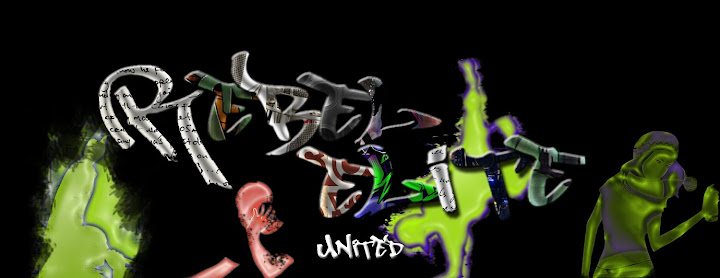
These days grime music is at a provocative juncture. The more popular of the UK Garage offspring has encountered an identity crisis. The braced explosion many in East London expected to occur in the early 2000s never happened. The fuse put out by a British downpour of critics who couldn't see the commercial potential of the emcee-dominated 2-step music, and consequentially rejected it. However, no one doubted the ability of this untapped British talent; the likes of Lady Sovereign, Kano and Wiley's abilities were seminally realized on the world stage. As a result, grime artists began to expand their sound for more mainstream appeal while moving away from the "grime" label-- some abandoning it all together.
Just this past year the music's attention seemed to reach a climax. The advent of grime emcees appearing on 4/4 electro-house beats propelled these artists to commercial success. Wiley and Dizzee's hit singles last summer reached the top of the British charts. The "electro-grime" phenomenon was short-lived however, and grime receded back into the underground where it was born, where it thrives.
Now some cats are claiming "grime is dead" just as Nas' ill stated remark about hip-hop in 2006 (how can hip-hop be dead if Wu-Tang is forever?). As opposed to its transatlantic counterpart, when grime is favored in a good light, everyone's a grime emcee... but when viewed negatively, people jump ship. Perhaps those dark, guttural sounds of the late UKG scene, ushered in by none other than pirate radio stations, are the key to grime's success. Some music, often the best kinds until exploited, are destined for these depths, where real heads who can relate to and feel the music will always be waiting.
Durrty Goodz' newest 2009 release, "Ultrasound," is unabashedly dedicated to progressing those gritty displays grime originally became known for. But don't expect Durrty to accept any sort of underexposed, secondary role in the London urban scene. He's got the idea down for widespread success that the more well known artists at the moment don't fully grasp: That grime must be developed to that raw, abrasive sound in order to sustain a dedicated audience. He'll surely be felt from underground institutions who maintain a vast, global outreach within the culture. I first heard his Taz Buckfaster produced "Destruction" on Mary Anne Hobbs BBC Radio 1, well-known to showcase the world's top experimental bass music. This is the audience that matters.
Empowered-- not hindered-- by an authentic grime sound, Goodz' release is sure to cause a stir within various urban tribes. The production from a litany of artists is top notch. His lyrical ability is indistinguishable from the typical, ragga-rooted grime definition and it doesn't matter what kind of track you put him on. Just like his chart-striving counterparts using 'hip-pop', R&B and funky-house foundations for grime, Durrty does it too, but on the flipside of the ambiguous genre's influential spectrum.
Primarily with wicked dubstep tracks as well as straight bass raters, Durrty blazes throughout the entire album. He does rep one commercialized track but boldly uses it as a satirical chance to do away with the four-to-the-floor electro sound permeating the scene. Man absolutely shines on this one too, demonstrating his cross-over ability which he systematically chooses to avoid. As a result, one should not underestimate Goodz' versatility as an emcee, but understand above all else, he is a grime emcee. Like-wise D&B, dubstep, and the other legacies of UKG have far more of a linkage to grime in terms of culture and music than the "big money sound" engineering, which I believe has undermined, to a certain degree, the uniquity of grime's potential since the outset.
Into 2009, the 2-step offspring of UK Garage have contiued to innovate with appeal. With dubstep spreading like wildfire around the global bass circuit, and it's four-floor sister, bassline, gaining prominence as a more commercially potent, female-friendly dance music, its no wonder Goodz would stick to this route when all the other avenues on grime's road to exposure are faltering. Once this electro-house fashion passes, I'm sure you'll see more dubstep and other bass producers collaborating more frequently with grime artists. But right now it’s Durrty Goodz to keep your eye on. So cop the album, up that bass, and blast that shit. Grime is far from dead. It's well alive and ready to kick your fucking head in. You just got to know where to look. P.E.A.C.E.
D.G. - This Is What They Want (Produced by Joker)
Scope Durrty Goodz' "Ultrasound" (2009):
Link: http://www.ukrecordshop.com/item/durrty-goodz-ultrasound.html


